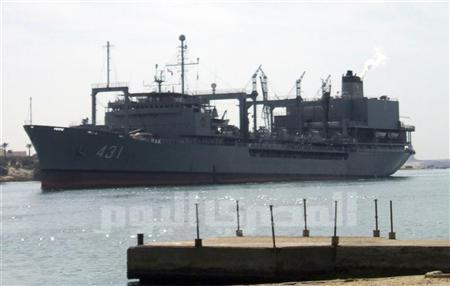
Turkey is struggling to import Iranian oil in July because of Western sanctions on ship insurance, trading and shipping sources told Reuters, leaving Tehran battling to sell oil now stuck in storage tanks in Egypt.
Turkey, which relies on Iran for half its crude needs, has already cut imports of Iranian oil by a fifth from average levels of 2011 to win waivers from US sanctions.
But volumes will now likely fall much steeper as Turkish main refiner Tupras cannot import Iranian oil on Turkish tankers after European Union sanctions against Tehran stopped the region's firms, which dominate the marine insurance sector, from offering cover on Iranian crude.
"Tupras was lifting Iranian crude with its own tankers up until July… This is no longer possible… They are now focusing more on lifting from Libya, Saudi Arabia and Iraq with its tankers," said a Turkey-based shipping source.
Turkish Energy Minister Taner Yildiz told reporters on Friday Tupras's crude purchases from Iran were continuing without any problems, but gave no details. Tupras declined to comment.
Industry experts say the ship insurance ban has proved to be the hardest hitting in the West's arsenal of sanctions aiming to persuade Iran, which relies on oil for more than half its budget revenues, to abandon its nuclear program. Iran denies its nuclear program is aimed at making weapons.
The lack of shipping cover has already disrupted flows of Iranian oil to Tehran's major customers in Asia — China, India, South Korea and Japan — at a time when the EU has stopped buying its oil altogether.
The measures are costing Tehran over UP$3 billion a month as its crude exports are estimated to have halved to 1.1 million barrels per day in the past months.
Turkey, which is among Iran's top five customers, is estimated to have imported around 160,000 barrels per day of Iranian oil in May.
Of this amount, more than 100,000 barrels per day was brought in from the Egyptian port of Sidi Kerir on board Turkish tankers and the rest on Iranian tankers through the Suez Canal.
"They [Turkish ships] are told to avoid the Sidi Kerir route as much as possible," the Turkish source said.
Sidi Kerir on the Mediterranean coast is connected by Sumed pipeline to the Ain Sokhna terminal on the Gulf of Suez, bringing oil from Iran, Saudi Arabia and Egypt for European markets.
"We understand some 7 million barrels of Iranian oil is now available from Sidi Kerir and we are hearing offers to buy it," one trading source said. Other trading sources confirmed they had seen several offers from little known traders.
Egyptian officials were not available to comment on stocks at Sidi Kerir.
Banks in fear of breaching sanctions
Iran said this month it had set up a consortium that could export 20-30 percent of its crude oil, performing a task which up until now was solely entrusted to the National Iranian Oil Company (NIOC).
"I'm sure we will see attempts to sell this oil to non-EU countries. But it will be very difficult because of sanctions," said one trading source.
Another said the main problem would be banking because of fear in the financial industry of running foul of the sanctions.
"I was unable to make a banking transfer the other day to a ship broker in Europe just because his initials were IR. Banks are scared of sanctions to death and will be policing very hard any deal involving oil from Sidi Kerir," he said.
Trade between Turkey and Iran has risen sharply over the past decade, and Turkey was regarded as a possible weak link in the international sanctions against Iran due to a long history of close relations between the neighbors.
Relations, however, were strained by Tehran's support for Syrian President Bashar al-Assad, while Turkey sided with Syrians who joined in the popular revolt against his rule.
The Centre for Global Energy Studies estimates Iran will be able to generate $42 billion this year from oil revenues, a massive decline from an all-time high of $73 billion in 2008 and $72 billion in 2011.




